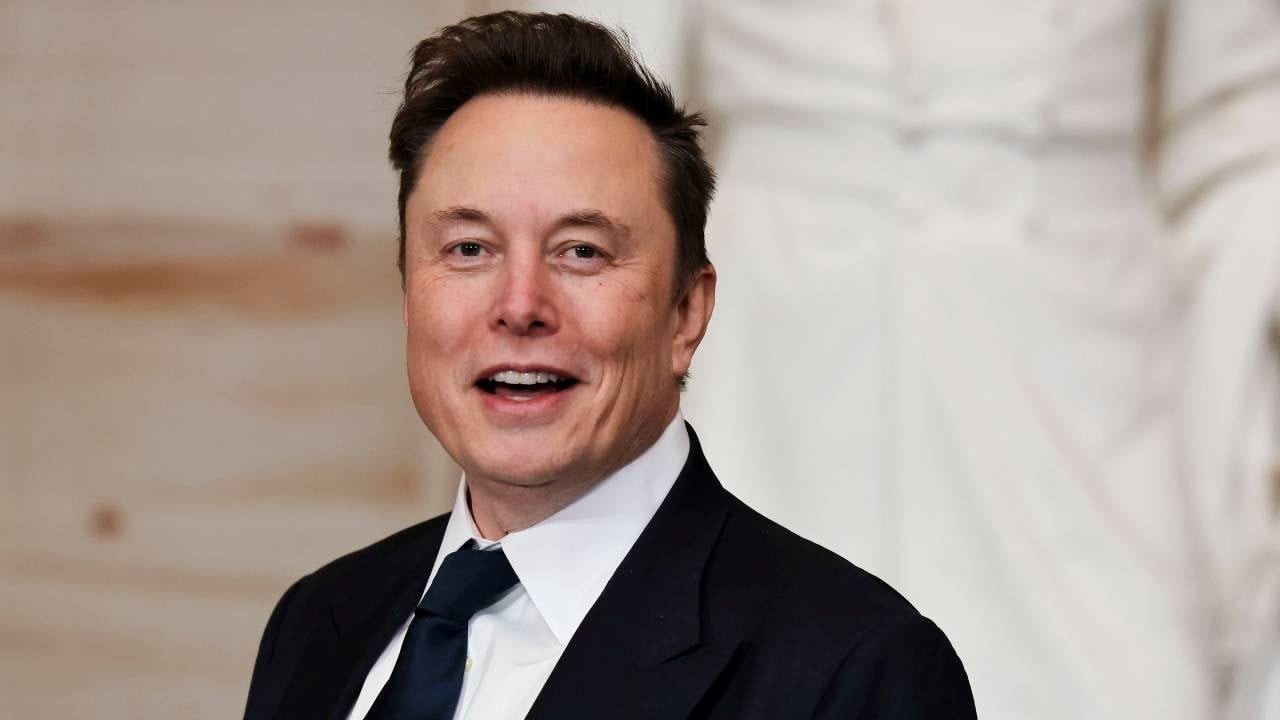
Elon Musk, the billionaire CEO of Tesla and owner of X (formerly Twitter), has long been known for his provocative behavior on the platform. From space exploration to controversial statements about artificial intelligence, Musk has made headlines for his bold remarks.
However, on Wednesday, his latest retweet has shocked even those accustomed to his extreme views. Musk reposted a tweet from an account known as Dr. Insensitive Jerk, which promotes misogynistic and racist ideas about women, particularly white women.
The retweet was sparked by a conversation Musk had earlier in the week on X. It began when a user, Morgonn, posted a question that read, "Why do liberal white women hate white people so much?" Musk, never one to shy away from controversy, responded by saying, “They’ve been programmed to do so by their teachers and the media.” His response was not unusual, as Musk has often used his platform to share opinions that align with far-right ideologies.
But the situation escalated when Dr. Insensitive Jerk, an account that regularly shares extremist views, quote-tweeted Musk’s response with a lengthy rant. In the tweet, Dr. Insensitive Jerk argued that women, especially white women, are “built to be traded” between tribes due to their physical weakness.

The account further claimed that women in the West are “raised in an anti-white culture,” leading them to despise their own race. The tweet went on to suggest that white women will eventually be forced to “remember they are white” and that this reminder should come from white men, as the alternative would supposedly be “less gentle.”
This idea that women are physically weak and “anti-white” is a deeply problematic and unsubstantiated theory rooted in misogynistic and racist beliefs. The idea of women being “traded” between tribes, in particular, evokes disturbing connotations of human trafficking and subjugation. Despite the extreme nature of the post, Musk retweeted it, giving it a broader platform.
This is not the first time Musk has shared or endorsed extremist content on X. Since acquiring the platform in late 2022, Musk has been criticized for allowing far-right ideologies to flourish on the site. Under his leadership, X has seen the return of many controversial figures, including Nick Fuentes, a white nationalist and Holocaust denier, and Andrew Tate, a misogynist influencer.
Musk’s support of these figures, alongside his own controversial remarks, has raised questions about his commitment to free speech and whether he is inadvertently fostering a more toxic online environment.
Musk’s influence on X extends beyond retweeting extremist ideas. He has also been criticized for shaping the platform's content moderation policies to allow for the amplification of far-right rhetoric. The billionaire has taken a hands-off approach to moderating hate speech and disinformation, allowing accounts that spread harmful conspiracy theories and racist ideas to gain large followings.

In addition to his controversial retweets, Musk has also been accused of promoting antisemitic views. In November 2023, Musk replied to a tweet with the phrase “You have said the actual truth,” a statement that many interpreted as endorsing antisemitic rhetoric.
Despite the backlash, Musk did not delete the tweet, and his actions only fueled the growing debate about his views on race and ethnicity.
Musk has attempted to walk back some of his more incendiary remarks, including a visit to Auschwitz with Israeli Prime Minister Benjamin Netanyahu in early 2024, which was widely seen as an attempt to show support for Jewish people. However, Musk has consistently denied being antisemitic, and his actions on X have done little to quell the criticism.
His behavior on X also raises concerns about the platform’s role in shaping public discourse. By giving a megaphone to extremist voices, Musk has turned X into a haven for hate speech and far-right ideologies. The platform, which was once a place for open dialogue and diverse perspectives, has now become a breeding ground for misinformation and hate.
Musk’s retweet of Dr. Insensitive Jerk’s post highlights the danger of unchecked extremism on social media. By giving these views legitimacy and a wider audience, Musk is contributing to the normalization of harmful beliefs. The idea that women are “anti-white” and that they are “built to be traded” is not only baseless but also deeply harmful to societal progress.

As Musk continues to wield immense power over X, the question remains whether he will take responsibility for the content that circulates on his platform. While Musk often defends his actions as promoting free speech, it is important to consider the consequences of giving extremists a platform to spread their hate-filled rhetoric.
The normalization of such ideas can have far-reaching consequences, not just in the digital world but in the real world as well.
Musk’s rhetoric on race and gender has also sparked discussions about his personal beliefs. His support for individuals like Scott Adams, the Dilbert cartoonist who has promoted racial segregation, and his defense of controversial figures like Alex Jones and Roger Stone have painted Musk as someone who is willing to embrace extremist views for the sake of promoting free speech.
But this raises the question: Is Musk truly committed to free speech, or is he simply enabling harmful ideologies that he agrees with?

The controversy surrounding Musk’s retweet comes at a time when his role in the tech industry is under increasing scrutiny. As the CEO of Tesla and SpaceX, Musk has built a reputation as a visionary entrepreneur, but his actions on X suggest that he may be more aligned with far-right extremism than with progressive ideals.
This has led to calls for greater accountability for the platforms that shape public discourse, and for individuals like Musk, who have the power to influence millions of people.
Musk’s continued association with extremist voices on X and his failure to address the growing issue of hate speech on the platform have led many to question his leadership. Critics argue that by allowing these views to flourish, Musk is not only damaging the reputation of X but also contributing to the larger problem of online radicalization.
As the debate around free speech and hate speech continues, Musk’s actions on X will likely remain a topic of intense discussion.
In conclusion, Musk’s retweet of extremist views about women and race is just the latest example of how his platform, X, has become a breeding ground for far-right ideologies. By amplifying harmful rhetoric and providing a platform for extremists, Musk is helping to normalize these dangerous ideas.
As the owner of X, Musk must grapple with the consequences of his actions and decide whether he wants to continue enabling the spread of hate or take a stand against the extremism that has come to define his platform. The future of social media and the impact it has on society may depend on the choices Musk makes in the coming years.



